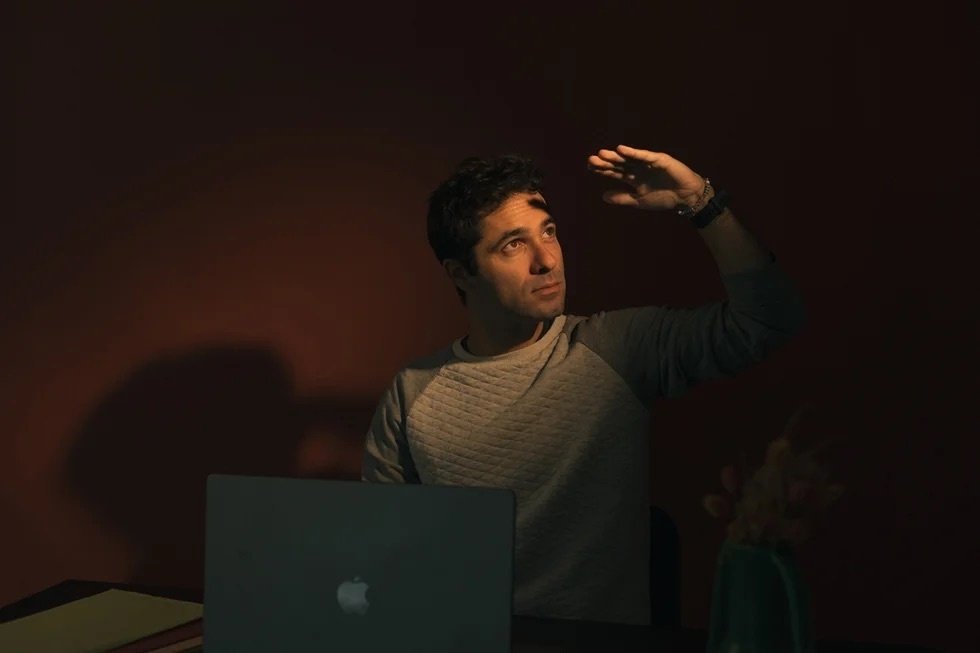Overcoming neurotypical norms during the job hunt
Sep 23, 2024
7 mins

JB
Writer, translator and journalist
Research suggests that teams are 30% more productive when they include neurodivergent professionals. However, despite these tangible benefits, the data show that neurodivergent workers consistently find themselves underemployed.
These professionals therefore represent a major source of untapped talent, creativity, and innovation for companies. However, current selection processes and interview formats are locking these people out of the recruitment process. So, what are the unique challenges neurodivergent candidates face during the job hunt, and how can they overcome them?
A broken system
“There is a problem with getting people in the pipeline,” says Susanne Bruyère, Academic Director of the Yang-Tan Institute on Employment and Disability at Cornell University. During her research into improving hiring outcomes for neurodivergent job candidates, Bruyère has found that if companies aren’t outwardly neurodiversity-friendly from the beginning on their websites, this can cause people to not even apply for positions.
She explains that there is also an issue with the screening process of resumes, as some neurodivergent professionals will refrain from listing their skills if they’re not 100% confident about their ability in them. She points to how this tends to differ from the general population, where people may list skills “assuming they can simply learn them on the job”.
“So, we’re losing people in the application process and we’re losing people in the screening process to get that interview,” Bruyère concludes. Still, it’s the interview that can truly hinder a successful hire.
Interviewing in a neurotypical world
“For some people who are Autistic, current interview styles with day-long processes or panel interviews can be anxiety producing,” says Bruyère, and this is just the tip of the iceberg. For neurodivergent career coach Jess Jarmo, what makes interviewing particularly challenging is the communicative element and how this plays into what hiring managers tend to look for during an interview.
“I’ve worked with many managers, and they’re often looking for a connection with somebody. Well, that can eliminate a lot of people who have autism and who may be struggling with that social aspect of connecting with people.”
Likewise, the form of questioning can also prove challenging. This is something that Neurodiversity Business Consultant and Leadership Coach, Shelly Lyons, speaks about at length. “In job interviews, there are often unclear, ambiguous and open-ended questions, and for people that are literal and direct communicators, that can be very challenging.”
Bruyère echoes this, adding that questions such as “Did you ever have to deal with a conflict situation?” or “How can we handle this scenario?” can be perceived as vague. “These questions are often seen by HR departments as good ways of finding out more about an individual, but they may be difficult for some people to answer because they’re not seen as directly job relevant.”
Lyons expands on interviewing styles, saying that there is often an expectation to give rapid responses as a way of demonstrating knowledge. However, she reminds us that some neurodivergent people may need a few seconds to process questions before answering. “There’s nothing wrong with pausing, but sometimes managers will jump in and interrupt a candidate’s thought process, mistaking silence for not knowing, which can negatively influence their views of a candidate.”
She also notes that neurodivergent people aren’t always given the space to ask questions. “Some people’s brains process the details before the big picture, which means they need to ask clarifying questions to obtain information and put things into context. This clarity is often missing from neurotypical communication styles.” She says that asking is ultimately about understanding and showcasing what a person can do.
To add more complexity to the issue, Lyons says that attempts to mask neurodivergent differences by following neurotypical social norms can also have an adverse effect on candidates. “I personally find eye contact to be difficult,” she says. “When trying to maintain it, I can sometimes lose track of what someone is saying because my focus is on meeting neurotypical social expectations such as holding eye contact. Therefore, our energy goes into masking and not showcasing our strengths.”
To disclose or not to disclose
So, with the selection process posing so many challenges for people who are neurodivergent and with CEOs actively seeking to make their companies more neurodiverse, is it beneficial for candidates to disclose a neurodivergence?
“I wouldn’t put it on your resume,” says Jarmo, who worked in recruitment for 15 years before becoming a career coach. She likens this to someone mentioning they enjoy horse riding on their resumé when it’s not relevant to the job. What’s more, even though companies can get tax breaks for hiring neurodivergent people, she says mentioning neurodivergent differences can lead to biases and misconceptions.
“If you’re having issues connecting during the interview, you can indeed talk about it there and then,” she says. However, Jarmo stresses that if a candidate is going to talk about being neurodivergent, they need to feel comfortable doing so. She says that talking to a career coach or other professionals can help someone figure out how to do this. Likewise, she says it’s important to frame the conversation around strengths and not weaknesses.
Bruyère echoes this point, saying that candidates should always lead with their skill set. “You should state why you’re interested in the job and the company. Explain the skills, knowledge, and experience that you would bring to the position while discussing why you think you could do a great job and how you want to grow and learn.” She argues that when you lead with this, it becomes easier to head into a conversation about neurodiversity.
The fear of discrimination
Understandably, the specter of discrimination is real, and some candidates may feel apprehensive disclosing that they are neurodivergent for fear that it may harm their chances. The Americans with Disabilities Act (ADA) does offer some protection in this case. For example, it is illegal for companies to ask candidates during an interview whether they have a disability. Yet as Jarmo concedes, the reality is that “some companies are just not open to hiring people with neurodivergent differences.” However, she does add that neurodivergent candidates probably wouldn’t be happy working at such companies because they ultimately wouldn’t receive the right support and accommodations.
Lyons expands on the issue of discrimination explaining that it’s fueled, in part, by society treating differences as “deficits,” as well as misguided media coverage, leading to uneducated biases and stereotypes surrounding neurodivergent individuals. “In an ideal world, people wouldn’t have to disclose their neurodivergence because we’d be doing things for everyone - and from a neuro-inclusive lens. The reality is, that’s just not the world we live in. There’s so much misinformation and lack of understanding that people just get written off. So, unfortunately, it’s a big risk to disclose.” Responsibility therefore lies with companies to embrace neurodiversity and make hiring processes more inclusive.
What could change?
On a macro level, Lyons believes that companies need to shift their thinking around hiring. She notes that managers often look for “company fit” and not “company add” – and that this needs to be reversed. This is to say instead of looking for someone to fit right in within a team, companies should be looking for individuals who will add to the team with their unique skills and ways of tackling tasks.
Bruyère also highlights the need to address the pipeline. “If employers are looking for neurodiversity in their labor pool, they need to think about the messaging on their website.” This includes stating that the company is an inclusive organization while showcasing what programs the company has in place to help people apply. Likewise, she says companies can showcase people who have been successful in their organization by telling their stories. “This messaging makes people want to apply.”
1. Job descriptions
Lyons believes that clear and concise job descriptions would also help to address the issue. She points to the fact that many postings include ambiguous or vague requirements such as “good communication skills,” explaining that this usually refers to neurotypical communication styles and that not all jobs truly require this. Similarly, she says that job descriptions should avoid corporate slang such as “be a rockstar,” which can sound ambiguous and deter qualified Neurodivergent individuals from applying. Ultimately, she says it is a question of listing the real job requirements in a literal, clear, and direct way.
2. Interviews
As for the actual interview, Lyons says that giving people clarity beforehand around expectations can help reduce some of the anxiety that comes with going into an unfamiliar and unpredictable environment. This can simply mean providing the interview questions in advance, explaining who will be in the interview and where it will be held, and offering skills-based assessments based on job requirements.
Equally, interviewers should consider the physical environment to help those with sensory sensitivities. For example, conducting the interview remotely or in a quiet space with few distractions and with no bright lights overhead. As Lyons states, making a few accommodations goes a long way in “helping neurodivergent people show up as their best selves.”
3. Culture
For Jarmo, companies would also greatly benefit from telling candidates about the company culture at the beginning of all interviews such as detailing inclusivity efforts and explaining how managers are trained to manage people with protected characteristics. “If you’re talking about diversity before you even start the interview, this can ease some people’s minds.”
Company culture and inclusivity are ultimately key. “Having this as part of the business strategy is critically important,” says Bruyère. She speaks of her excitement about increasing affirmative interest in neurodivergent individuals. To this end, Bruyère believes that internships will also play a key role in helping organizations “move towards the inclusion of neurodivergent populations,” as they give companies a chance to vet candidates as well as educate a workforce about the value of hiring people with differences. Likewise, internships allow neurodivergent people to test out a company. “From research in the disability area, we know that successful hires are six times more likely to have occurred when you have internships that target this population,” she says.
Bruyère ultimately concludes that real change will come from companies working alongside community agencies that can help source appropriate talent while creating opportunities to educate supervisors. “This is about people doing their homework to make their organizations friendly to new talent acquisition efforts and having the appropriate messaging both inside and outside the organization. Companies need to be saying that this is all part of making the organization successful and that everyone has a part to play in this effort”.
Photo: Welcome to the Jungle
Follow Welcome to the Jungle on Facebook, LinkedIn, and Instagram and subscribe to our newsletter to get our latest articles every week!

More inspiration: Prepare for a job interview

Hybrid work goals: How to nail the negotiation in your next job interview
Want a hybrid work setup? Learn how to research, negotiate, and showcase the benefits of flexibility during your next job interview.
Dec 19, 2024

The secret to interview success? That annoying colleague
Got a story about a difficult coworker? Good! That office drama might just be your ticket to acing your next interview.
Dec 16, 2024

Is flexibility the key to “having it all” as a parent?
Balancing a career and parenthood can be challenging, but with the right approach, it’s possible to achieve both.
Oct 08, 2024

Slacker vs. control freak: What’s your interview style?
We’ve all been there: whether you're overly anxious or effortlessly cool—what best describes you?
Sep 24, 2024

It’s time for inclusive holiday PTO: How can you advocate for it?
As the workforce becomes more diverse, companies should let employees take time for the holidays that matter to them
Sep 19, 2024
The newsletter that does the job
Want to keep up with the latest articles? Twice a week you can receive stories, jobs, and tips in your inbox.

Looking for your next job?
Over 200,000 people have found a job with Welcome to the Jungle.
Explore jobs